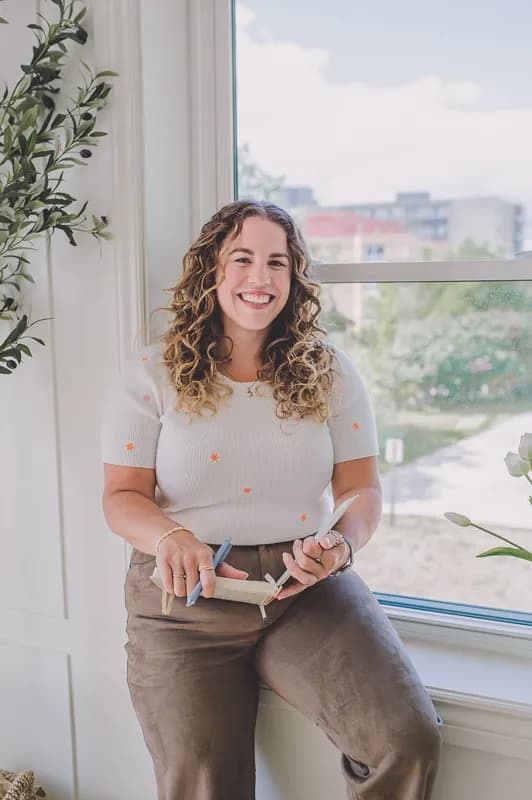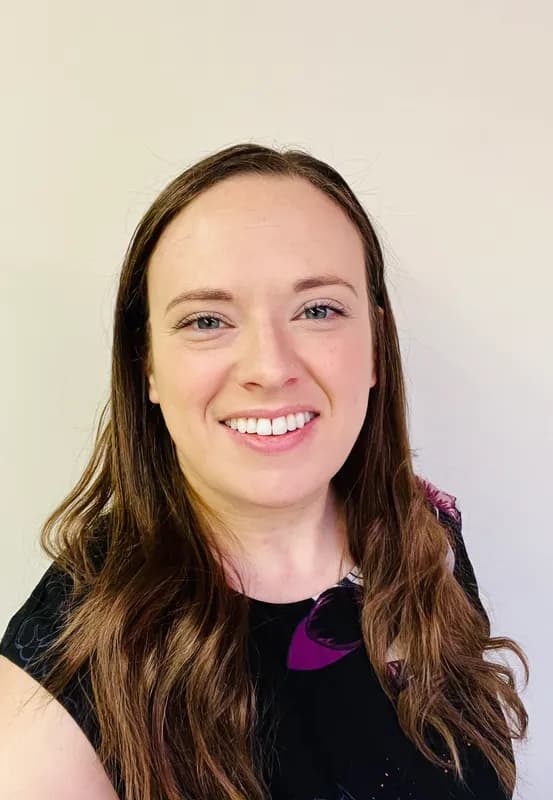Therapy for depression

If you're feeling empty, exhausted, or like you've lost interest in things that used to matter, you're not alone. Depression affects millions of Canadians, and reaching out for help is a sign of strength, not weakness. Working with a therapist can help you rediscover hope and energy for life. Let's explore what depression really looks like, how therapy can make a difference, and connect you with therapists who understand what you're experiencing.
What is depression?
Common signs and symptoms
Depression shows up differently for everyone. Maybe you wake up already tired, no matter how much you sleep. Perhaps you've stopped enjoying your morning coffee, seeing friends, or activities that once brought you joy. You might feel like you're moving through life underwater—everything requires so much more effort than it used to.
Beyond feeling sad, depression can show up as irritability, numbness, or feeling disconnected from yourself and others. You might notice changes in appetite—eating too much or too little. Concentration becomes harder; you read the same paragraph three times without absorbing it. Some people describe feeling worthless or guilty about things that aren't their fault. These aren't character flaws—they're symptoms of a treatable condition.
How it differs from sadness
Everyone feels sad sometimes—after a loss, disappointment, or hard day. That's a normal part of being human. Depression is different. It's a persistent heaviness that doesn't lift, even when good things happen. While sadness usually passes within days or weeks, depression lingers for weeks or months, affecting your ability to function in daily life.
Depression can run in families, but it's not just about genetics. According to the Canadian Mental Health Association, life experiences matter significantly. Major life changes, trauma, chronic stress, or ongoing health issues can trigger depression. Sometimes it appears without any clear cause, which can feel confusing—but that doesn't make it any less real or valid.
Statistics in Canada
Depression is one of the most common mental health conditions in Canada. According to Statistics Canada's 2022 Mental Health Survey, rates have increased since 2020, affecting people across all ages and backgrounds. The good news? CAMH research shows that depression is highly treatable—most people who seek therapy experience meaningful improvement.
The real impact of depression
Relationships and social life
Depression can make you feel like a burden to the people you love. You might withdraw because you don't have energy for socializing, or because you're convinced others are better off without you. Friends might stop reaching out after you've declined invitations repeatedly. Partners may feel hurt or confused by your emotional distance. This isolation often makes depression worse, creating a cycle that feels impossible to break. Therapy can help you reconnect with the people who matter to you.
Work or school performance
When you're depressed, even simple tasks feel overwhelming. You might miss deadlines not because you don't care, but because you can't focus or find the motivation to start. Calling in sick becomes more frequent. Students might know they need to study but spend hours staring at their laptop, unable to begin. The mental fog makes decision-making harder, and the exhaustion means you're running on empty all day. Your performance suffers not from lack of ability, but because depression is draining your resources.
How therapy helps with depression
Overview of why professional support matters
Depression can make you believe that nothing will help, that you're beyond help, or that you should be able to "snap out of it" on your own. These thoughts are symptoms of depression itself. A therapist provides an outside perspective, specialized tools, and consistent support through the recovery process. They've helped many people through this before and know the path forward, even when you can't see it yourself. Think of therapy as partnering with someone who holds hope for you until you can hold it for yourself.
What happens in therapy
Therapy for depression is practical and focused on getting you feeling better. Your therapist won't just listen while you talk—though that's part of it. They'll work actively with you to identify what's maintaining your depression and teach you specific strategies to feel better day by day.
Sessions might involve examining thought patterns that fuel depression, setting small achievable goals to rebuild your life, working through difficult emotions, or developing coping strategies for particularly hard days. Your therapist adjusts their approach based on what you need—some sessions might be about problem-solving, others about processing feelings. The pace is always tailored to you.
Evidence-based approaches that work
Cognitive Behavioural Therapy (CBT)
CBT is one of the most effective treatments for depression. It helps you recognize negative thought patterns and develop more balanced ways of thinking. You'll learn to challenge the harsh self-criticism and hopeless thoughts that depression creates, replacing them with more realistic perspectives.
Behavioural activation
Depression makes you want to withdraw, but isolation and inactivity make depression worse. Behavioural activation helps you gradually re-engage with activities and people that bring meaning or pleasure to your life. You'll start small and build momentum, rediscovering parts of yourself that depression has hidden.
Interpersonal therapy (IPT)
IPT focuses on how your relationships and life changes affect your mood. It's particularly helpful if your depression started around a major life transition, grief, or relationship difficulties. You'll work on improving communication and building stronger support networks.
Mindfulness-based cognitive therapy (MBCT)
MBCT combines mindfulness practices with cognitive therapy. It's especially effective for preventing relapse in people who've experienced depression before. You'll learn to notice negative thought patterns early and respond to them differently, reducing the risk of depression returning.
What to expect from therapy for depression
First session: what happens
Your first session is about understanding your experience and beginning to map out a path forward. Your therapist will ask about your symptoms, how long you've been feeling this way, and what's been most difficult. They'll also ask about your life, your strengths, and what you're hoping therapy can help with.
If you're worried about crying or not knowing what to say, don't be. Therapists expect tears and silence—both are completely okay. You don't need to have everything figured out before you start. That's what therapy is for.
Timeline: when people typically see progress
Many people notice subtle improvements within the first few weeks—maybe you have one good morning, or you laugh at something for the first time in weeks. More substantial changes typically happen around 8 to 16 sessions, though everyone's timeline differs based on the severity and duration of their depression.
Recovery isn't linear. You'll have better days and harder days. Some weeks you might feel like you're backsliding. This is normal and expected—it doesn't mean therapy isn't working. Your therapist will help you navigate these ups and downs.
Between sessions: homework and practice
Your therapist might suggest small activities between sessions—taking a short walk, challenging a negative thought, or reaching out to one person. When you're depressed, these can feel impossible. Start incredibly small. Even five minutes counts. The goal isn't perfection; it's building momentum bit by bit. Be honest with your therapist about what feels manageable—they'll adjust.
Measuring success: what improvement looks like
Recovery from depression doesn't mean feeling happy all the time. It means the heaviness lifts enough that you can engage with life again. You'll have energy for things that matter. You'll feel emotions—including sadness—but they'll pass rather than consuming you. You'll remember what it feels like to look forward to something, to laugh genuinely, to feel connected to yourself and others. Life becomes livable again, then enjoyable.
Find a therapist who specializes in depression
Choosing the right therapist matters. Each province in Canada has its own regulations, which is why working with a recognized professional can make a real difference in your care. Stellocare takes the uncertainty out of the process by listing only verified therapists you can trust.
The right therapist for you
No therapists found with these specialties in Ontario.
Try selecting a different province.Additional resources for managing depression
Community services
BounceBack® (Canada-wide)
A free skill-building program offered by Canadian Mental Health Association (CMHA) for youth 15+ and adults experiencing low mood, mild to moderate depression, anxiety or stress. Delivered via phone coaching and online modules.Learn about BounceBack®.
Ontario Structured Psychotherapy Program (Ontario)
A publicly-funded free service for adults 18+ in Ontario with depression and anxiety-related concerns. Provides cognitive-behavioural therapy (CBT) or guided self-help depending on need.Visit OSP Program.
MindWell / Province-Virtual Services (New Brunswick example)
In New Brunswick, the government supported a free online skill-building program to help manage low mood and mild-moderate depression among youth (15-18) and adults (19+).More details via Government of Canada.
Self-help techniques
Starting Small
- One thing today: Pick one small thing—shower, make your bed, text a friend. Just one. Tomorrow, try again.
- Sunlight: Even 10 minutes outside helps. Sit near a window if going out feels impossible.
- Move your body: A five-minute walk counts. Movement doesn't have to mean exercise—it just means getting up.
Sleep and Routine
- Sleep schedule: Try to wake at the same time daily, even on hard days. This helps regulate your body's rhythms.
- Avoid napping: If you must nap, keep it under 30 minutes before 3 PM.
- Routine anchors: Pick 1-2 things you do daily at the same time (morning coffee, evening shower). Small routines provide structure.
Challenging Negative Thoughts
- Notice the thought: Depression lies. When you think "I'm worthless" or "nothing will help," recognize these as symptoms, not truths.
- Evidence check: Would you say this to a friend? What would they say back?
- Fact vs. feeling: "I feel like a failure" is different from "I am a failure." Feelings aren't facts.
- Keep a thought record: Write down negative thoughts and challenge them. Sometimes seeing them on paper helps.
Connection and Support
- Reach out: Text one person today. Even "I'm having a hard day" is enough. Connection helps, even when depression tells you to isolate.
- Say yes once: Next time someone invites you somewhere, try saying yes even if you don't feel like it. You can leave early if needed.
- Tell someone: You don't have to go through this alone. Let one trusted person know you're struggling.
What to Avoid
- Alcohol and substances: They might feel like relief but make depression worse over time.
- Isolation: Depression wants you alone. Resist this when you can, even in small ways.
- All-or-nothing thinking: You don't need to do everything perfectly. Doing something is better than nothing.
Common questions about therapy for depression
How long does therapy take?
Most people attend therapy for 12 to 20 sessions for depression, though this varies widely based on severity and individual needs. Some people feel significantly better after 8-10 sessions, while others benefit from longer-term support. Your therapist will regularly discuss progress and adjust the plan with you.
Do I need medication?
Many people successfully manage depression through therapy alone, especially for mild to moderate depression. For more severe depression, a combination of therapy and medication often works best. Your therapist can discuss options with you and provide a referral to a doctor if medication might help. The decision is always yours.
What if I don't have the energy for therapy?
This is incredibly common. Start with video sessions from home if going somewhere feels impossible. Tell your therapist you're struggling with energy—they can shorten sessions or adjust their expectations. Even 20 minutes is valuable. Remember: therapy is meant to help you gain energy back, not drain more.
How do I know if therapy is working?
Early signs might be subtle—sleeping slightly better, having one okay morning, noticing a thought pattern you didn't catch before. Over time, you'll notice bigger changes: more energy, rekindled interest in activities, feeling more like yourself. Your therapist will regularly check in about progress. If something isn't working, speak up—therapy can be adjusted.
What if I've tried therapy before and it didn't help?
Not all therapy or therapists are the same. Maybe the timing wasn't right, the approach didn't fit, or the connection wasn't there. It's worth trying again, possibly with a different therapist or therapeutic approach. Be open with your new therapist about past experiences—they can help figure out what might work better this time.
Related concerns
References
- Centre for Addiction and Mental Health (CAMH). (2024). Depression. Retrieved from https://www.camh.ca/en/health-info/mental-illness-and-addiction-index/depression
- Statistics Canada. (2023). Mental disorders and access to mental health care. Retrieved from https://www150.statcan.gc.ca/n1/daily-quotidien/230922/dq230922b-eng.htm
- Canada Suicide Prevention Service. (2024). 9-8-8: Suicide Crisis Helpline. Retrieved from https://988.ca/
- Cuijpers, P., Berking, M., Andersson, G., Quigley, L., Kleiboer, A., & Dobson, K. S. (2013). A meta-analysis of cognitive-behavioural therapy for adult depression, alone and in comparison with other treatments. Canadian Journal of Psychiatry, 58(7), 376-385. Retrieved from https://pubmed.ncbi.nlm.nih.gov/23870719/
- Dimidjian, S., Hollon, S. D., Dobson, K. S., Schmaling, K. B., Kohlenberg, R. J., Addis, M. E., ... & Jacobson, N. S. (2006). Randomized trial of behavioral activation, cognitive therapy, and antidepressant medication in the acute treatment of adults with major depression. Journal of Consulting and Clinical Psychology, 74(4), 658-670.
- Lemmens, L. H., Arntz, A., Peeters, F. P., Hollon, S. D., Roefs, A., & Huibers, M. J. (2015). Clinical effectiveness of cognitive therapy v. interpersonal psychotherapy for depression: results of a randomized controlled trial. Psychological Medicine, 45(10), 2095-2110.
- Teasdale, J. D., Segal, Z. V., Williams, J. M., Ridgeway, V. A., Soulsby, J. M., & Lau, M. A. (2000). Prevention of relapse/recurrence in major depression by mindfulness-based cognitive therapy. Journal of Consulting and Clinical Psychology, 68(4), 615-623.
- Government of Canada. (2024). Hope for Wellness Help Line. Retrieved from https://www.hopeforwellness.ca/
- Moshe, I., Terhorst, Y., Philippi, P., Domhardt, M., Cuijpers, P., Cristea, I., ... & Sander, L. B. (2021). Digital interventions for the treatment of depression: A meta-analytic review. Psychological Bulletin, 147(8), 749-786. Retrieved from https://pubmed.ncbi.nlm.nih.gov/34898233/
About Stellocare
Stellocare is a Canadian platform where you can find the best fit therapist for you. Search the right thperaists now by asking our AI, browsing our list, or finding our social workers for personal referral.

Dalia Mohammed
Registered Psychotherapist (ON)

Amelia Henriquez
Registered Psychotherapist (Qualifying) (ON)

Chelsea Jackson
Registered Psychotherapist (ON)

Emily Hiram
Registered Psychotherapist (ON)

Juliet Seade
Registered Social Worker (AB)

Esha Jain
Registered Psychotherapist (Qualifying) (ON)

Stephanie Neshcov
Registered Psychotherapist (Qualifying) (ON)

Marlo Drago
Registered Social Worker (ON)

Carissa Cochrane
Canadian Certified Counsellor

Krista Teare
Canadian Certified Counsellor

Manishapreet Grewal
Registered Psychotherapist (Qualifying) (ON)

Peter Wong
Registered Psychotherapist (ON)

Nicole Pawlick
Canadian Certified Counsellor

Cameron Whatram
Registered Clinical Counsellor (BC)

Natalie Bender
Registered Psychotherapist (Qualifying) (ON)

David Keddy-Stacey
Registered Psychotherapist (Qualifying) (ON)

Joseph Bottros
Registered Psychotherapist (ON)

Kate Wong
Registered Psychotherapist (ON)

Vrushalee Nachar
Registered Psychotherapist (ON)

Riffat Yusaf
Registered Psychotherapist (ON)

Dalia Mohammed
Registered Psychotherapist (ON)

Amelia Henriquez
Registered Psychotherapist (Qualifying) (ON)

Chelsea Jackson
Registered Psychotherapist (ON)

Emily Hiram
Registered Psychotherapist (ON)

Juliet Seade
Registered Social Worker (AB)

Esha Jain
Registered Psychotherapist (Qualifying) (ON)

Stephanie Neshcov
Registered Psychotherapist (Qualifying) (ON)

Marlo Drago
Registered Social Worker (ON)

Carissa Cochrane
Canadian Certified Counsellor

Krista Teare
Canadian Certified Counsellor

Manishapreet Grewal
Registered Psychotherapist (Qualifying) (ON)

Peter Wong
Registered Psychotherapist (ON)

Nicole Pawlick
Canadian Certified Counsellor

Cameron Whatram
Registered Clinical Counsellor (BC)

Natalie Bender
Registered Psychotherapist (Qualifying) (ON)

David Keddy-Stacey
Registered Psychotherapist (Qualifying) (ON)

Joseph Bottros
Registered Psychotherapist (ON)

Kate Wong
Registered Psychotherapist (ON)

Vrushalee Nachar
Registered Psychotherapist (ON)

Riffat Yusaf
Registered Psychotherapist (ON)

